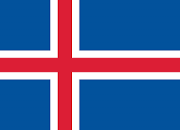Chemycal has been acquired by 3E
Learn MoreChemycal has been acquired by 3E
Learn MoreDiscover how Chemycal PRO helps you boosting your regulatory monitoring:

Common Entry Document for High-Risk Food and Feed Products
A document certifying that certain food and feed of non-animal origin imported from designated third countries of origin probably containing a higher risk as determined via the rapid alert system for food and feed (RASFF) have been inspected upon arrival. The document also permits the release of these goods on the Icelandic market. Said food and feed products are subject to an increased level of official controls at the designated point of entry (DPE) in Iceland. The risk may consist, e.g., in reportedly high levels of contaminants (e.g. aflatoxins, pesticides, Sudan dyes and/or heavy metals).
Minamata Convention
On 3 May 2018, Icleand acceded to the Minamata Convention on Mercury, a global treaty to protect human health and the environment from the adverse effects of mercury. The Convention intends to ensure that exports of mercury may only take place with the consent of the importing country and for the purpose of environmentally sound interim storage or an allowed use. Such consent must also be sought in the case of export transactions from a member state to any country which is not a party of the Convention. Forms for the provision of written consent by a party or a non-party to the import of mercury are both made available by the Convention in different languages.
In addition, the phase-out of mercury-added products has been agreed upon. Therefore, by 2020, Iceland will ban the production, exportation and importation of numerous mercury-containing products, e.g. dry cell batteries, switches and relays, certain types of fluorescent lamps, cosmetics, pesticides as well as designated non-electronic measuring devices (e.g. thermometers and blood pressure monitors). Parties may apply for the registration of exemptions from the stipulated phase-out dates for one or more products or processes listed in Annex A or B of the Convention if their use or import is deemed essential. Unless a shorter period is indicated in the respective register by a party, exemptions usually expire five years after the relevant phase-out date and may be extended only once per product upon request.
Waste
As Croatia was the 97th country that ratified the so-called Ban Amendment (Decision III/1) on the Basel Convention on the Control of Transboundary Movements of Hazardous Wastes and their Disposal on 6 September 2019, the requirements for the implementation of said Amendment have been fulfilled. Consequently, the Decision came into force on 5 December 2019. The quoted Amendment prohibits the exportation of hazardous waste from countries belonging to the Organisation for Economic Co-operation and Development (OECD), the European Union (EU) and Liechtenstein to other countries. Iceland is a member to the Convention, and has already ratified the Amendment in 2018.
CONTINUE READING ON: madb.europa.eu
2013 © MyChemicalMonitoring. ALL Rights Reserved. About Us | Terms and Conditions